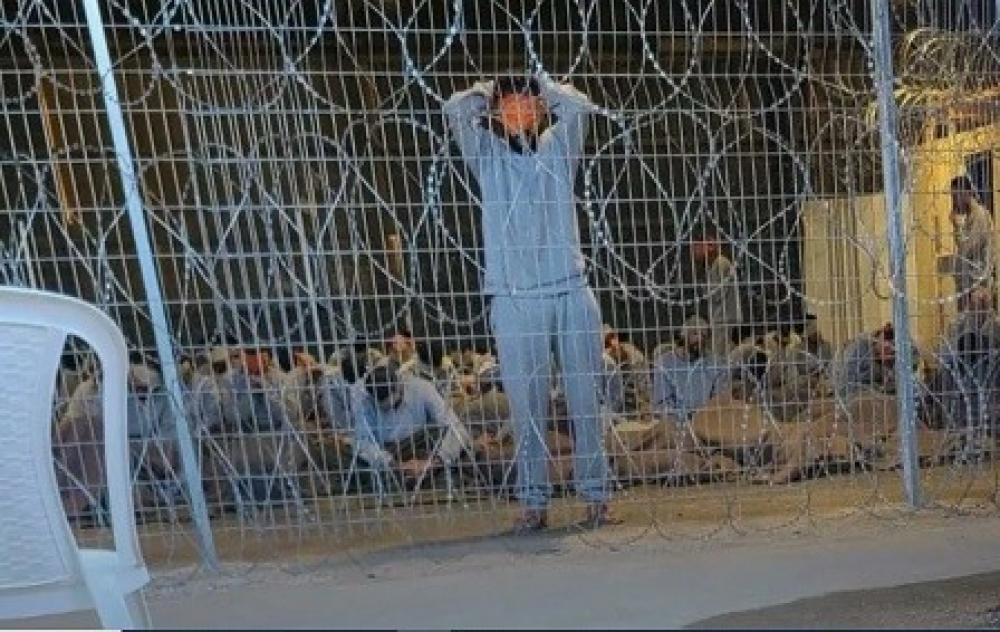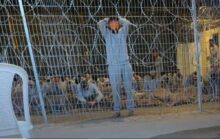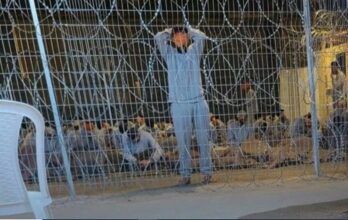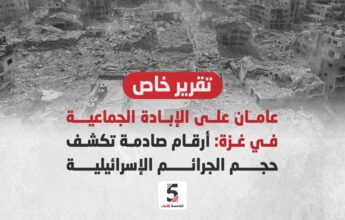Tales from Behind the Walls: Voices of released prisoners expose crimes of the occupation
Al-Khamisa News Network - Gaza

“Tales from Behind the Walls”: Voices of Freed Prisoners Expose Occupation’s Crimes
As dozens of Palestinian inmates draw their first breaths of freedom after years of harsh detention, testimonies are emerging that reveal bloody chapters of abuse inside Israeli prisons. These accounts do not only recount the details of torture and mistreatment but expose a systematic pattern of daily humiliation and flagrant breaches of international law and humanitarian norms. The prisoners’ issue has never been mere numbers in reports; it is a living embodiment of a resilient people who see dignity in their patience and resistance in their steadfastness. Prisoners are the custodians of national meaning from behind bars, turning cells into schools of endurance and their bodies into battlegrounds of struggle that chains cannot defeat. Between the jailer’s oppression and the prisoner’s dignity, this issue remains an open testimony against the occupation, a testament to the absence of justice, and a call for a global conscience to awaken from slumber.
“The Living Grave”…
Jamal Daghah, one of the freed prisoners from the village of Mazare’ al-Nubani north of Ramallah, described his harrowing experience in Israeli jails as “a living grave,” saying: “What we endured is unbelievable. We were beaten daily and deprived of food; I lost about thirty kilograms, and my physical and psychological condition tells the full story.”
Daghah added: “They tried to extinguish our will to live, but we clung to patience and hope, and we emerged with spirits stronger than their walls.”
His testimony matches dozens of accounts documented by the Palestinian Prisoners’ Club, which reveal a policy of “starvation and abuse” carried out by the prison service against detainees since the start of the assault on Gaza.
At the end of his remarks Daghah said emotionally: “We left the prison with exhausted bodies, but our souls are free. The occupation may arrest our bodies, but it cannot imprison our will.”
The words of the freed prisoner encapsulate the pain of hundreds who have recently left the cells, carrying unhealed scars on their bodies and unbreakable resolve in their hearts.
Harrowing testimonies… beatings, electric shocks and humiliation a daily reality behind bars
Seventeen-year-old freed prisoner Thaer Abu Sara from Nablus revealed in an interview shocking details of what he endured during his detention, saying: “I was subjected to severe beatings and electric shocks. They left us for long hours without food or medicine, and they mocked us when we asked for water or painkillers.”
He added: “I used to hear the screams of prisoners in the neighboring cells, and whenever someone screamed I knew my turn would inevitably come.”
In another painful testimony, university student Shatha Jarrar, 24, from Jenin, spoke of her harsh experience inside Hasharon prison, pointing to ongoing violations against female detainees: “I was placed in a cell monitored by cameras even inside the bathroom; the purpose was to humiliate us psychologically and break our dignity. I refused food for days to preserve my privacy and dignity.”
She added: “We heard the female prisoners’ screams at night, and banging on the iron doors was our only way to communicate and console each other.”
Freed prisoner Faisal (who asked that his family name not be published for security reasons) said what he lived through in prison defies description: “The beatings were random and the insults never stopped. What we endured would be enough pain for half a nation, but we responded with patience and faith that one day we would be released.”
He pointed out that the prison administration deliberately isolated him and prevented visits and contact with the outside world “so there would be no witnesses to the crimes.”
These testimonies join hundreds of accounts documented by rights organizations, confirming that detainees — including children and women — suffered grave violations amid a lack of international accountability.
Lists of freedom… and testimonies for investigation
Over the past days the Prisoners’ Media Office published official lists containing the names of hundreds of freed detainees under the recent exchange deal, which included prisoners of different ages and areas, among them: Nasri Ayyad Hussein Asi, Muhammad Jamal Muhammad Aql, Ahmed Adel Jaber Saadeh, and others who had long sentences.
The lists confirmed that the release operation did not only cover recently detained suspects but also included prisoners who had spent many years behind bars, some exceeding ten years of detention, reflecting the breadth and scope of the deal.
Alongside these developments, rights demands have intensified following the succession of painful testimonies from freed prisoners about torture, starvation and humiliation.
The Prisoners’ Affairs Commission and the Palestinian Prisoners’ Club issued consecutive statements calling for an urgent international investigation into what they described as “systematic torture crimes” inside the occupation’s prisons.
The commission’s spokesman said: “These testimonies are not stories or isolated incidents but conclusive evidence of a systematic policy aimed at breaking the will of Palestinian detainees.”
He indicated that the commission continues to collect documents and testimonies in preparation to submit them to the International Criminal Court as part of a war crimes dossier.
International rights calls
International rights organizations, including Amnesty International and Human Rights Watch, called for immediate access for United Nations missions and the International Committee of the Red Cross to visit detention facilities, particularly amid reports of a number of detainee deaths under torture and the deteriorating health of dozens more.
The testimonies of freed prisoners reveal that the occupation’s prisons are an extension of an open war on the Palestinian people, where the most brutal forms of torture and abuse are practiced in an attempt to break the spirit and silence the voice. Yet they emerged insisting they are not numbers in statistics but witnesses to the truth and messengers of dignity that will not bow.
The prisoners’ cause is not a detail in the struggle for liberation; it is the heart of the conflict and the measure of an entire nation’s dignity. Those who resisted behind bars need more than open doors — their sacrifices must be told and the occupying state held accountable for its crimes. Their steadfastness, despite shackles and wounds, awakens in generations an undying belief that freedom is seized, not given. Loyalty to them begins here: by turning their pain into an unforgettable global cause until the cells are defeated and freedom is writ large.





